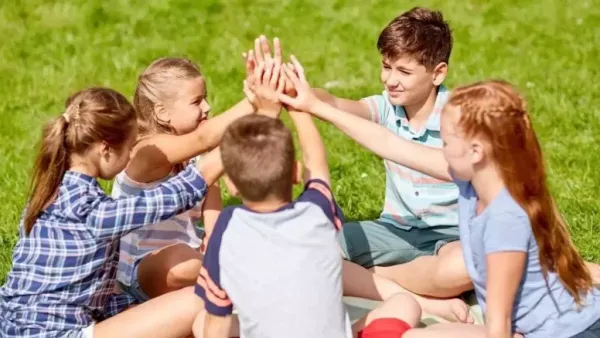
Making friends is an important part of the child’s emotional and social development. Nevertheless, for many children, especially those who are facing anxiety, shame or new environment, it may seem a difficult task. Thankfully, parents can play a quiet but impressive role in making this journey easier.
By teaching basic social skills, by creating a safe environment for conversation and setting examples themselves, children can gain confidence to join and create true relationships. Here are some gentle but effective methods that will make your child feel like joining and he will naturally be able to make friends.
Encourage participation in rich groups. The inclusion of your child in the activities of small groups such as art class, book club, sports team or dance group gives them a common interest to interact. These arrangements reduce pressure by providing structure and purpose, making it easier for children to start interaction and make relationships around things they enjoy.
Focus on confidence, not perfection
Children who believe in themselves are more likely to take social risk. Appreciate their efforts-why should they be small, such as saying hello or joining a group game. Instead of comparing them to others, help them understand that failures are a part of learning. Every effort of him is like moving one step ahead.
For children who feel overwhelmed in groups, the intimate environment provides more manageable space. Invite one or two classmates or neighbors for simple, low pressure activities such as frying, riddles or external games. These moments give children a chance to relax, talk openly and create confidence at their own pace.
Teach social skills through sports
Sometimes, children want to make friends, but they do not understand how to start. In such a situation, parents can come forward by practicing in sports and games. Playing a role in general social exchange may reduce their anxiety and develop introduction. Like phrases:
“Hello, I’m ___, would you like to play?”
“Can I join your game?”
“Perhaps next time, no problem!”
“I like building blocks – what do you think about you?”
Regular practice of these simple phrases helps children feel more ready and confident during real life conversations.
Adopt the social behavior you want to teach them
Children watch the elders carefully-how do you greet the postman, how to talk to neighbors, or how to handle small quarrels, they give them valuable lessons. In your daily conversation, be kind, patient and sympathetic. By showing warmth and respect in his behavior, he gets a blueprint to make his friendship.
Let friendship be naturally
Socially supporting your child does not mean forcing him to include it in every group or situation. This is about boosting their confidence, providing them to join them and gradually motivating them to opportunities to connect with others. Over time, the most shy child can also develop into a friendship that really matters.
With continuity and kindness, you can help your child feel more involved and to prepare better to move forward in the world of friendship-one step.